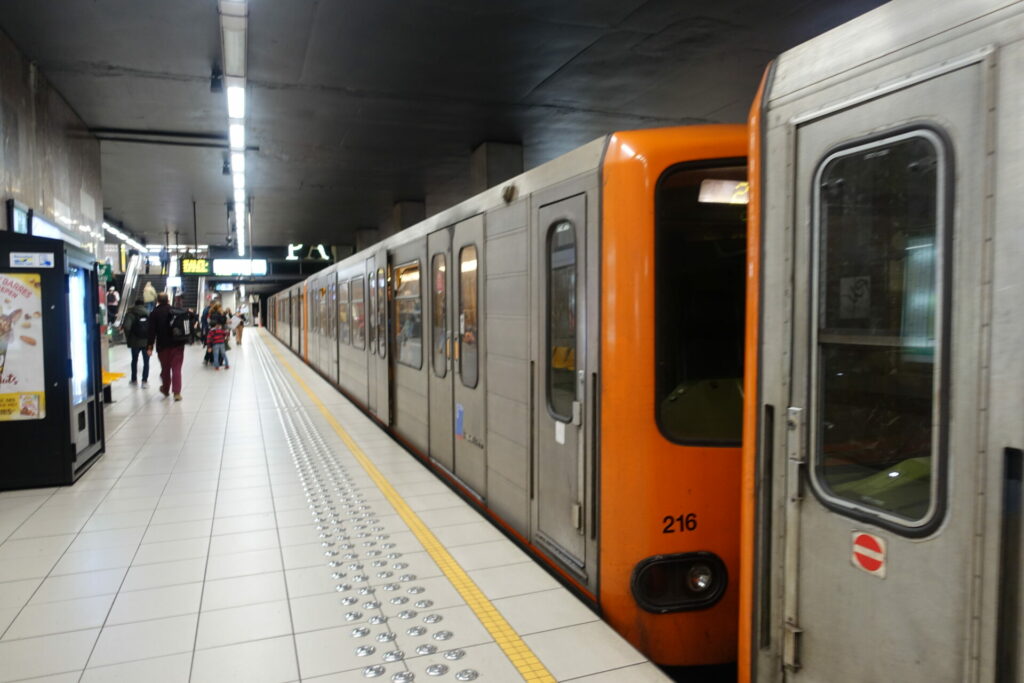Following worrying reports of high levels of air pollution in Paris' metro network, Brussels carried out air quality analyses in several stations. The findings were presented last week.
Earlier this year, it was reported that Paris' metro operator RATP is being investigated after an investigation showed that, in most stations, the air is more polluted underground than outside. Brussels' public transport operator STIB subsequently carried out its own analysis of air quality in 2023.
But unlike the Paris findings, the measurements at three metro stations – Vandervelde, Ribaucourt and Gare du Midi, chosen for their underground location and the fact they are among the older stations – were all in line with previous measurements and showed that levels were well within the limits set by a 2011 Royal Decree.
Stricter limits
This decree defines the limits to protect the health and safety of workers against the risks associated with chemical agents in the workplace, in particular those that can be inhaled and enter the respiratory system.
"We set our standards for pollution based on the health and safety of workers, as drivers and station staff are the most exposed," Guy Sablon, STIB's spokesperson, told The Brussels Times. "As workers stay here much longer, the limits set for their safety are much stricter."
The concentrations measured over an eight-hour period represent less than 10% of the Occupational Exposure Limit in force for all the compounds measured, including fine particles, benzene, toluene, ethylbenzene, xylenes and carbon monoxide.
"The results are particularly low (1000 times below the specified maxima) for black carbon, because the metro does not run on combustion engines, but on electric motors," Mobility Minister Elke Van den Brandt explained.
Incomparable systems
Sablon said that the poor results recorded in Paris are due to its dated metro system, which is more than 100 years old. "Meanwhile, ours dates back to 1976, meaning it is easier to guarantee better air quality levels."
Parisian metros also use a different type of brake – all STIB metro trains use electric regenerative braking technology which prevents the production of dust by abrasion of the brake shoes on the brake discs. In Paris, metros often run on tyres and not iron on rails.
Sablon highlighted that much of Brussels' metro network runs above ground, meaning there are openings which allow outside air into the tunnels, resulting in the natural ventilation of stations." Stations and tunnels are also ventilated along the metro lines via ventilation grilles installed along the underground sections at the ends of the stations.

